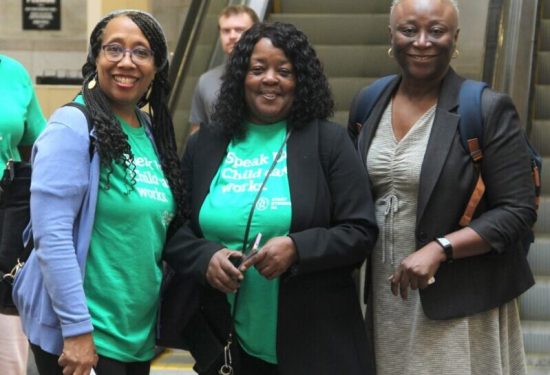As we honor National Black Business Month, it’s important to spotlight a sector of our community that often goes unnoticed but plays a critical role in shaping the future of our future generations: home-based child care providers. These dedicated professionals transform their homes into nurturing environments where children grow, learn and thrive. After 30 years in this profession, I have witnessed the profound impact personalized, home-based care can have on children and families. I am proud to have played a part in closing the educational achievement gap within Black and brown communities.
Home-based child care providers are not just caregivers but educators, mentors and pillars of their communities. We form deep, lasting bonds with the children and families we serve. I’ve had the joy of seeing my former students graduate from high school, attend prestigious universities, earn advanced degrees and become productive members of society. Many of these families remain in touch, and I am proud to witness their milestones and continue to champion their successes.
Yet, the journey of a home-based child care provider has its challenges. We witness firsthand the highs and lows that families face daily. Our role often extends beyond education to social workers, as we connect families with valuable resources when they struggle to meet basic needs like shelter and food. We make personal sacrifices—offering extended hours, accessible care and a compassionate ear—despite our own challenges, which include heavy workloads, isolation, lack of resources and low compensation.
Most licensed home-based child care programs are classified as small businesses. We proudly wear the banner of small, and often women-owned companies. Yet the economics of being a home-based child care provider are extremely challenging, often leaving providers with razor-thin margins.
In North Carolina, for example, the subsidy reimbursement rate is based on the 2021 market rate despite the rising costs of rent, food, utilities and overall expenses due to inflation. This outdated reimbursement system is one of the factors diminishing growth and profitability of these small businesses. This has led to the mass exodus of qualified early educators from the workforce, which is a tragedy considering the crucial importance of their work. Our business’s quality rating relies heavily upon our teachers’ education. However, razor-thin budgets do not allow adequate revenue to pay teachers with degrees the thriving wages needed to sustain our workforce.
As we celebrate National Black Business Month, let us not forget the crucial role that home-based child care providers play in our communities. To policymakers and systems administrators, I ask that you consider how policies can better support home-based child care providers as an essential part of the workforce. The National League of Cities and the National Association of Counties recently partnered with Home Grown to release a series of briefs on how state and local governments can better support home-based providers, including:
- Creating Economic Opportunities for Providers: a brief that explores how state and local governments can better promote economic opportunity and stability for providers and their businesses by investing in shared service alliances and networks to connect providers to new resources, as well as leveraging government’s authority to reduce regulatory barriers for providers.
- Compensation and Benefits: a brief that explores how governments can improve compensation for providers and offer additional benefits, including support for child care, housing and student loan forgiveness.
Each brief includes snapshots from states, cities and counties that are implementing supportive policies.
To my fellow providers: Thank you for your dedication, passion and unwavering commitment to the children and families you serve. Together, we can build a brighter future for home-based child care and ensure these unsung heroes receive the recognition and support they deserve.




